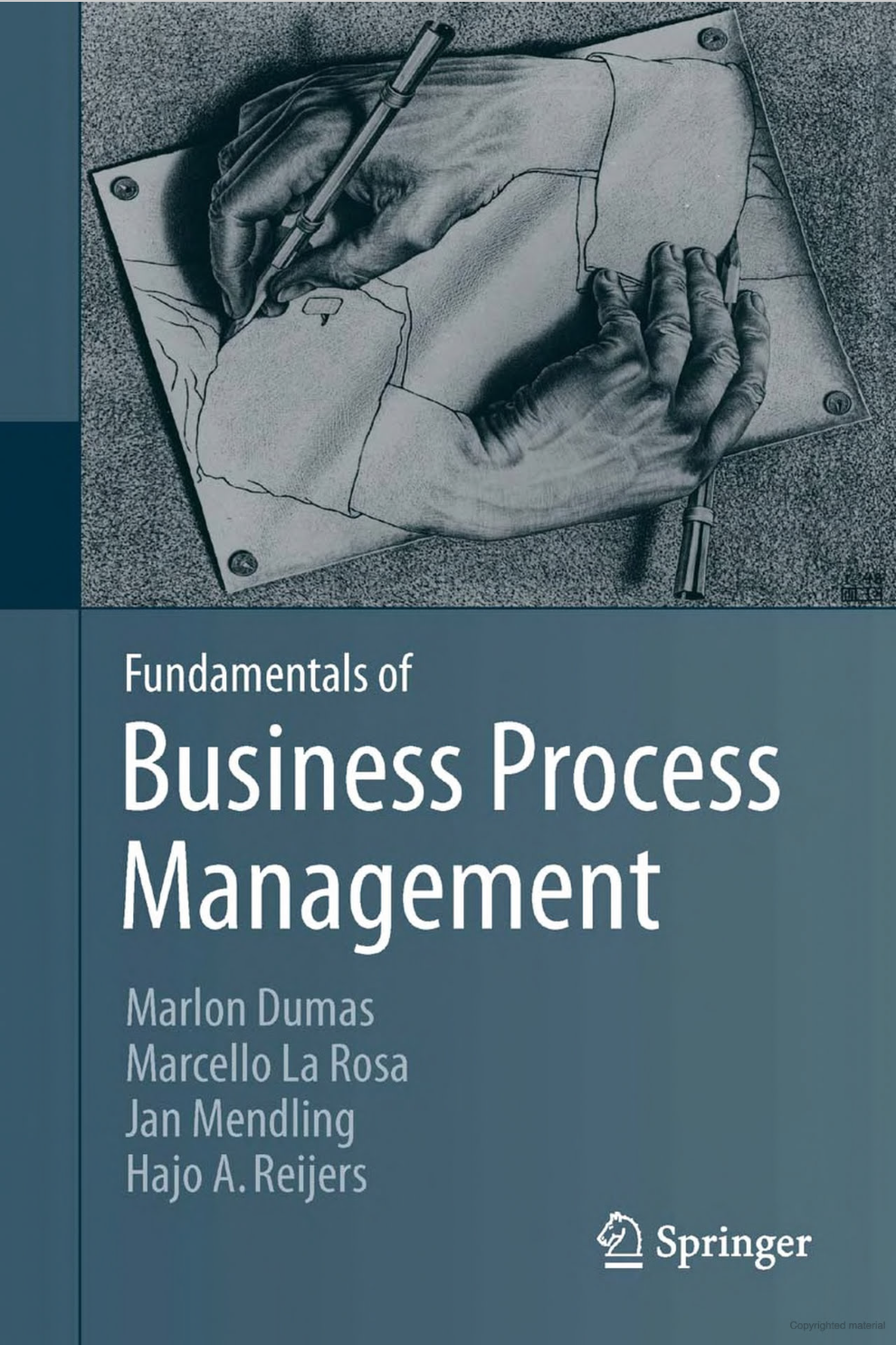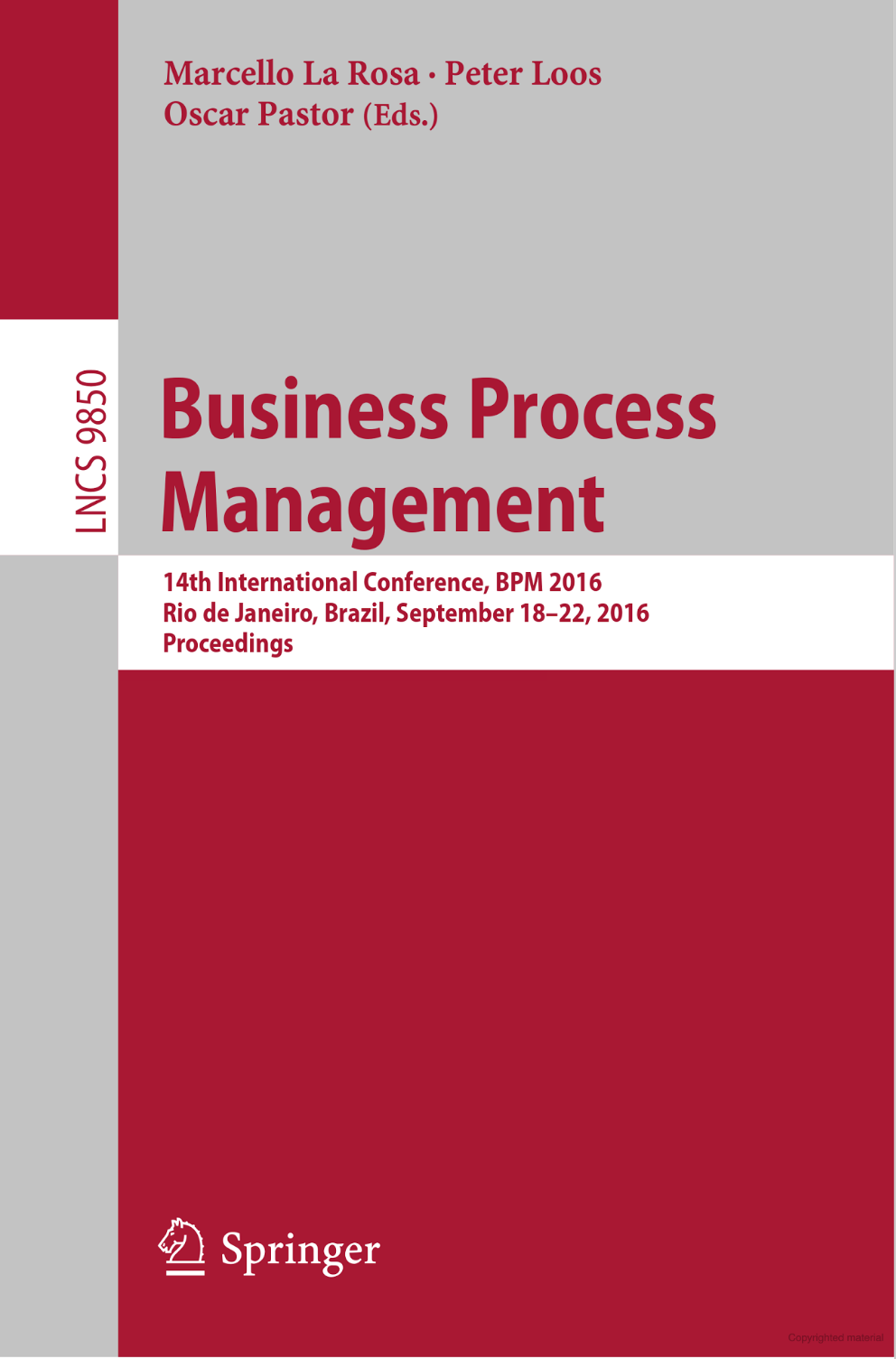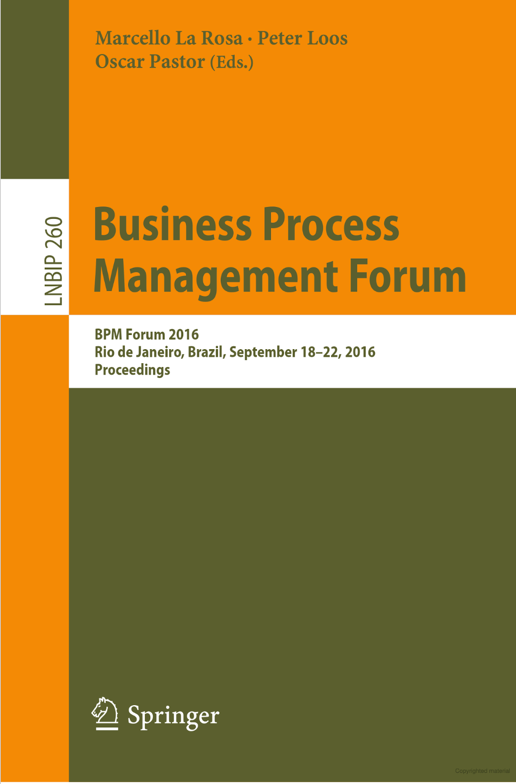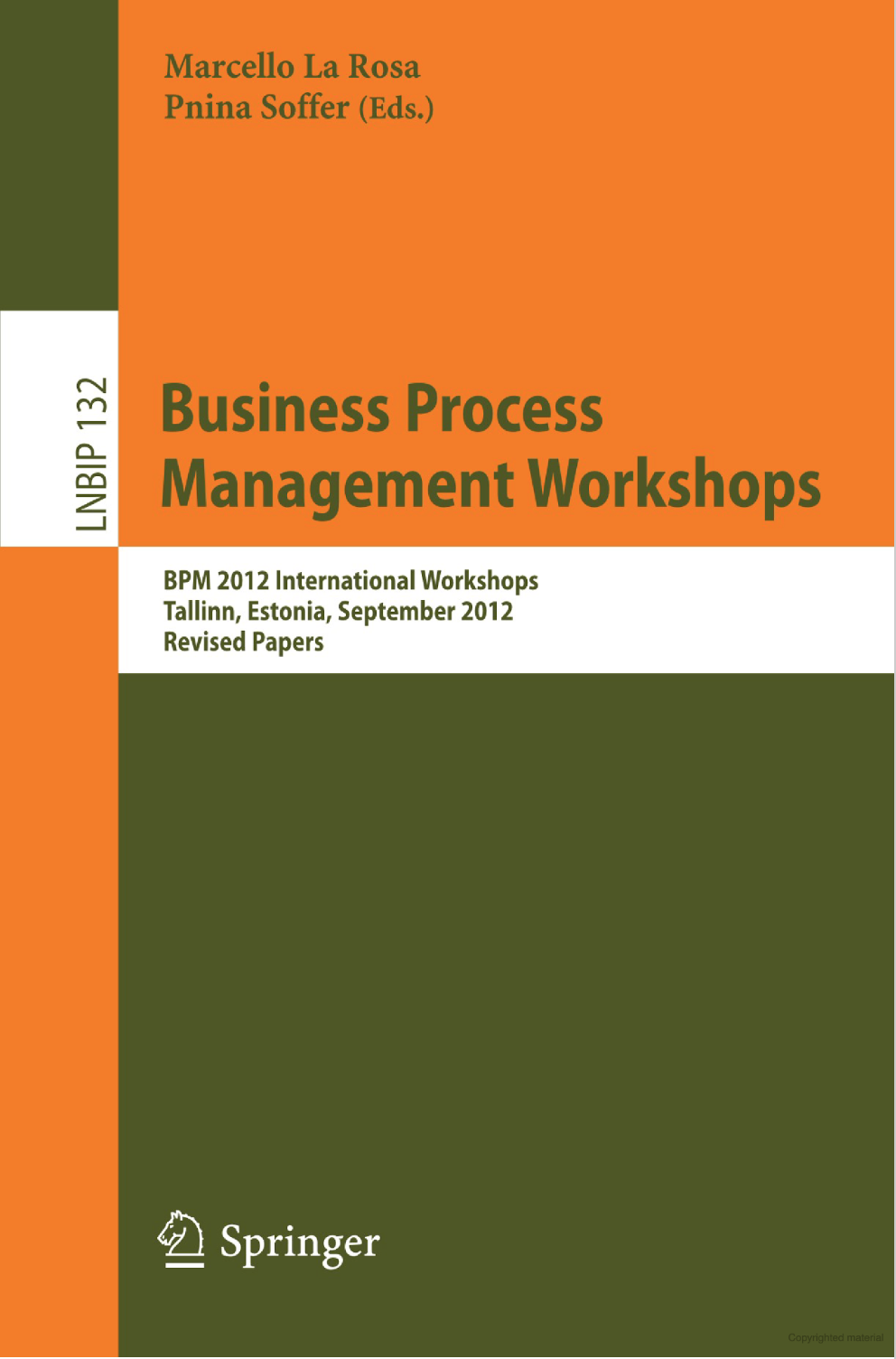The following student projects are available in the area of Business Process Management (BPM). BPM has been recognized as a major research area across IT and Business. You will conduct the project within an internationally influential research group in this field - the BPM Discipline at QUT, with opportunities for interaction with major companies that will improve future career prospects.
To see the content of a project, click on it.
• Apromore – Advanced Process Model Repository: various projects available
Motivation/Background: Both empirical and anecdotic evidence indicate that enterprises in various industries such as finance, healthcare and government, tend to collect hundreds of business process models over time. It is quite common that such sets of industry-strength process models include hundreds or even thousands of activities and are relevant for similar numbers of participants with varying skills and responsibilities. In that sense, it may not come as a surprise that many organizations find it difficult to keep track of such large amounts of complex process models – an issue that is referred to as "model management". The problem is exacerbated by overlapping content across models, process models that are used simultaneously for different purposes, the use of different modeling notations such as EPCs, BPMN, etc. The availability of increasing numbers of business process models within organizations forms both a challenge and an opportunity. The challenge is how to sensibly deal with such large volumes of models, which may need to be consulted, updated and re-used over long periods of time. The opportunity lies in exploiting this potentially rich source of content in combination with the abundance of process management tools and techniques that are available, to create new models and support application scenarios that were unforeseen at the time of their conception.
Aims/Outcomes: In this project you will work with QUT's Apromore team on the implementation of various features of Apromore – an Advanced Process Model Repository which aims to offer rich features to store, maintain, analyze and exploit the content of large collections of process models. These features go beyond the typical amenities of data repositories such as check-in/check-out, access control and simple queries. Instead, the emphasis is on sophisticated, state-of-the art functionalities to maintain, evaluate, compare and improve large collections of process models. AProMore is implemented as a service-oriented architecture comprising a number of different types of Web services.
Requirements: GPA 5.5+, XML, XML Schema, (Web Services and principles of SOA, Business Process Modelling.)
• Interactive questionnaire-based configuration of process models (completed)
Motivation/Background: Business Process Configuration is gaining growing consensus among practitioners and academia as the next frontier of business process modeling. Traditionally business process models are built from scratch whenever the need for new or more streamlined business procedures arises within an organization. Configurable process models offer an alternative to this costly and time-consuming operation by integrating a collection of best-practices in a single prepacked artefact. These configurable models can then be individualized to suit the requirements of a specific organization or business area, by removing those model parts that are not relevant to the context in question.
Aims/Outcomes: This project involves the development of an interactive questionnaire tool for process models configuration to be integrated into the Synergia configuration toolset. This tool will allow business analysts to individualize a configurable process model by answering a set of domain-related questions expressed in natural language, and will offer a view on the configurable model being individualized on-the-fly. In this way, non-technical users, such as domain experts, can leverage off the benefits brought by configurable process models, and through the view on the configurable model, they can also realize the impact of their configuration decisions on the process model.
Requirements: GPA 5.5+, Java, XML, (Business Process Modelling).
• Suitability analysis of current languages for configurable process modeling
Motivation/Background: Business Process Configuration is gaining growing consensus among practitioners and academia as the next frontier of business process modeling. Traditionally business process models are built from scratch whenever the need for new or more streamlined business procedures arises within an organization. Configurable process models offer an alternative to this costly and time-consuming operation by integrating a collection of best-practices in a single prepacked artefact. These configurable models can then be individualized to suit the requirements of a specific organization or business area, by removing those model parts that are not relevant to the context in question.
Aims/Outcomes: This project will start with the review of current approaches for modeling configurable processes. Next, the suitability of these approaches will be analyized against a set of requirements drawn from an industry case study in the Personal Loans domain. Where needed, this analysis will be complemented with a proposal to extend current approaches in order to support the identified requirements.
Requirements: GPA 5.5+, Business Process Modeling.
• Mapping questionnaire models to configurable process models
Motivation/Background: Business Process Configuration is gaining growing consensus among practitioners and academia as the next frontier of business process modeling. Traditionally business process models are built from scratch whenever the need for new or more streamlined business procedures arises within an organization. Configurable process models offer an alternative to this costly and time-consuming operation by integrating a collection of best-practices in a single prepacked artefact. These configurable models can then be individualized to suit the requirements of a specific organization or business area, by removing those model parts that are not relevant to the context in question.
Aims/Outcomes: This project involves the development of a mapper tool for process models configuration to be integrated into the Synergia configuration toolset. Through Synergia, analysts can individualize configurable process models by answering a set of questions expressed in natural language. Specifically, the mapper tool will allow process modellers to link domain questions to variation points in a configurable process model by means of an intuitive drag-and-drop interface.
Requirements: GPA 5.5+, Java, XML, (Business Process Modelling).
• Visual support for configurable YAWL models (completed)
Motivation/Background: YAWL (Yet Another Workflow Language) is a very powerful, yet fundamentally simple language to describe even the most complex business processes. YAWL is very expressive, as it is built on the results of the Workflow Patterns Initiative, and comes with an open source workflow management system that supports the execution of its processes. Business Process Configuration is gaining growing consensus among practitioners and academia as the next frontier of business process modeling. Traditionally business process models are built from scratch whenever the need for new or more streamlined business procedures arises within an organization. Configurable process models offer an alternative to this costly and time-consuming operation by integrating a collection of best-practices in a single prepacked artefact. These configurable models can then be individualized to suit the requirements of a specific organization or business area, by removing those model parts that are not relevant to the context in question.
Aims/Outcomes: This project consists in applying the principles of process configuration to the YAWL language. Speciically, it involves the design and implementation of a visual plugin for the YAWL Editor which will allow users to draw C-YAWL models, i.e. YAWL process models enhanced with configuration aspects, and later to configure them.
Requirements: GPA 5.5+, Java, XML, XML Schema, Business Process Modelling.
• Documenting similarities in process models via configurable models (completed)
Motivation/Background: Business Process Configuration is gaining growing consensus among practitioners and academia as the next frontier of business process modeling. Traditionally business process models are built from scratch whenever the need for new or more streamlined business procedures arises within an organization. Configurable process models offer an alternative to this costly and time-consuming operation by integrating a collection of best-practices in a single prepacked artefact. These configurable models can then be individualized to suit the requirements of a specific organization or business area, by removing those model parts that are not relevant to the context in question.
Aims/Outcomes: Given a set of similar process models (in BPMN) taken from an industry sector, this project involves: i) the identification of similaries among these models; ii) the construction of the corresponding configurable process model (in C-EPC or C-YAWL); iii) the linkage of this model with a questionnaire model that will be used for the process model configuration via the Synergia toolset.
Requirements: GPA 5.5+, Business Process Modelling.
|
If you are interested in one of the above projects, please contact me. Moreoever, you can go here for information on how to visit/join the BPM Research Group and for funding opportunities.
|




